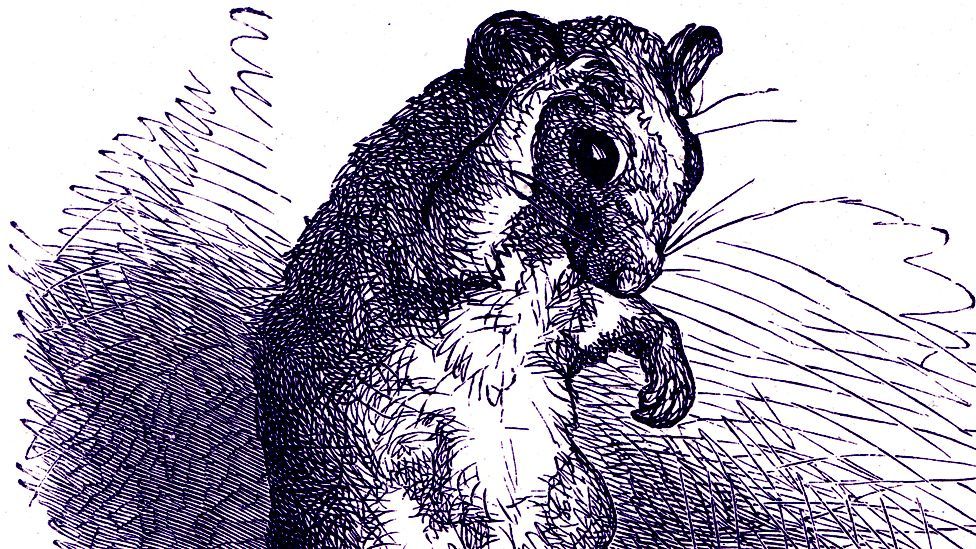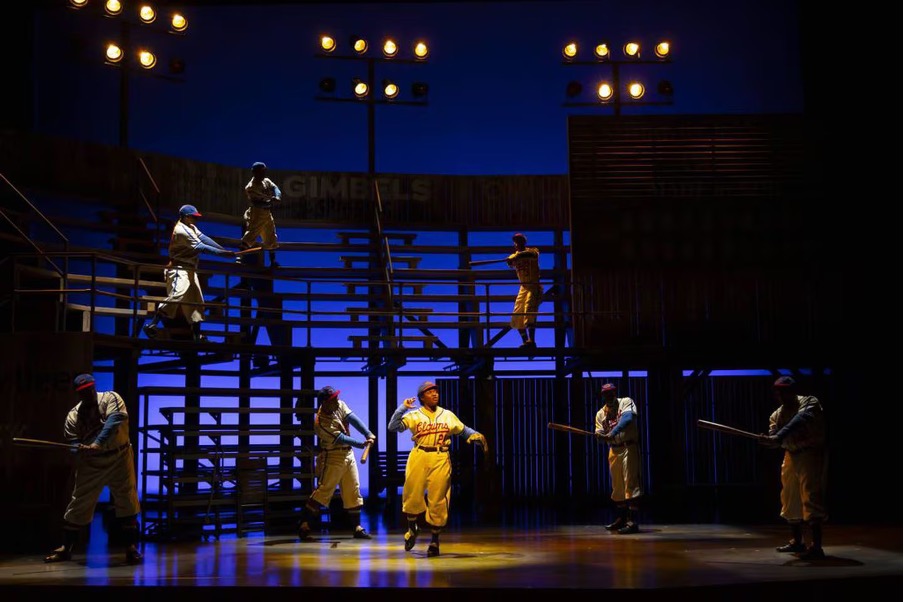 On June 19th, 1865, African Americans slaves in Texas were told they were free. Juneteenth, 19th June, has been a Federal Holiday since 2021 when President Biden gazetted this day as one to celebrate the emancipation of black slaves, and one step towards the “freedom” upon which Americans pride themselves. This recognition was a response to several high profile murders, notably that of George Floyd.
On June 19th, 1865, African Americans slaves in Texas were told they were free. Juneteenth, 19th June, has been a Federal Holiday since 2021 when President Biden gazetted this day as one to celebrate the emancipation of black slaves, and one step towards the “freedom” upon which Americans pride themselves. This recognition was a response to several high profile murders, notably that of George Floyd.
Above is a scene from a recent play, Toni Stone, written by the playwright Lydia Diamond, (a drama structured about the first woman to play baseball for the Indianapolis Clowns of the Negro Leagues). As Stone, the actress Jennifer Mogbock’s characterisation is that of a determined woman with the prowess to smack the ball and play hard. The scene depicts stylised “game time moments” when the team performs vaudeville acts with a tincture of the minstrel. It is playing in Boston as part of extensive Juneteenth celebrations and illustrates one example of how important the celebration of this day is regarded, despite its being so recently recognised.
It made me think about the modern meaning of holidays, originally “holy days”. That meaning has been well and truly lost, but American holidays are generally about veneration of the past, with both its upsides and downsides. Apart from New Year’s Day, holidays in the USA celebrate the past – the heritage as etched into the mythology of the United States as a Christian country.
I have celebrated Thanksgiving in Chicago with an American family which was a memorable experience as I was an “intruder”. I barely knew the family and was touched by their generosity and felt honoured by them asking me.
One year, we marched to the Tenderloin District of San Francisco in celebration of Martin Luther Day, January 15th. It was the first time I had walked with black people, not just Afro-Americans. Again, I felt like an intruder, but we walked on the outside of the march as a symbol of solidarity but outsiders.
In Australia, I am not an outsider and in my own way, I acknowledge Anzac Day. It is not sacred to me; but it is a day where mostly young men were sacrificed to combat unhinged narcissistic villainy. Akin to the American Memorial Day, which falls on the last Monday in May, on which that Nation honours the men and women who died while serving in the military, whereas its Veterans Day, observed every November 11th, recognises all who have served in the Armed Forces (and is not a Federal holiday).
In contrast, some of our national holidays may celebrate our past, although the actual reason often belies the name. Australia Day is really the end of summer holidays, and the King’s Birthday, the opening of the ski season aka the recognition of the start of winter. Australia Day is a misnomer; January 1st should be the National day if it was the intention to recognise the date of the birth of Australia. Clearly this would cause a commotion because it would mean the loss of one holiday, apart from which, there is not the fervour of honouring a group of colony politicians bickering for over a decade whether they should come together as a nation – unlike the 4th of July when the Americans unequivocally come together to celebrate their independence as a nation.
January 26th is really when NSW people can celebrate the shiploads of convicts and British military low life that were dumped on our shores, to the annoyance of the local Aboriginal people. Nevertheless, it has that element of the Australian cultural personality – always looking for a fight.
As for the King’s Birthday, it celebrates the entrails of the British monarchy, not the actual birthday of Charles III, which is November 14th. God knows why we are celebrating the Restoration of the British monarchy following the Cromwellian regime, sometime in the 17th century. Really worth celebrating!
At least Australia celebrates Labour Day, even if on four different days, in March (three states), May (two states), October (three states). There are two different dates in March – an earlier one for Western Australia and later two for Victoria and Tasmania. However, none of the dates coincides with the actual date when the Eight-Hour Day was inaugurated on April 21st, 1856.
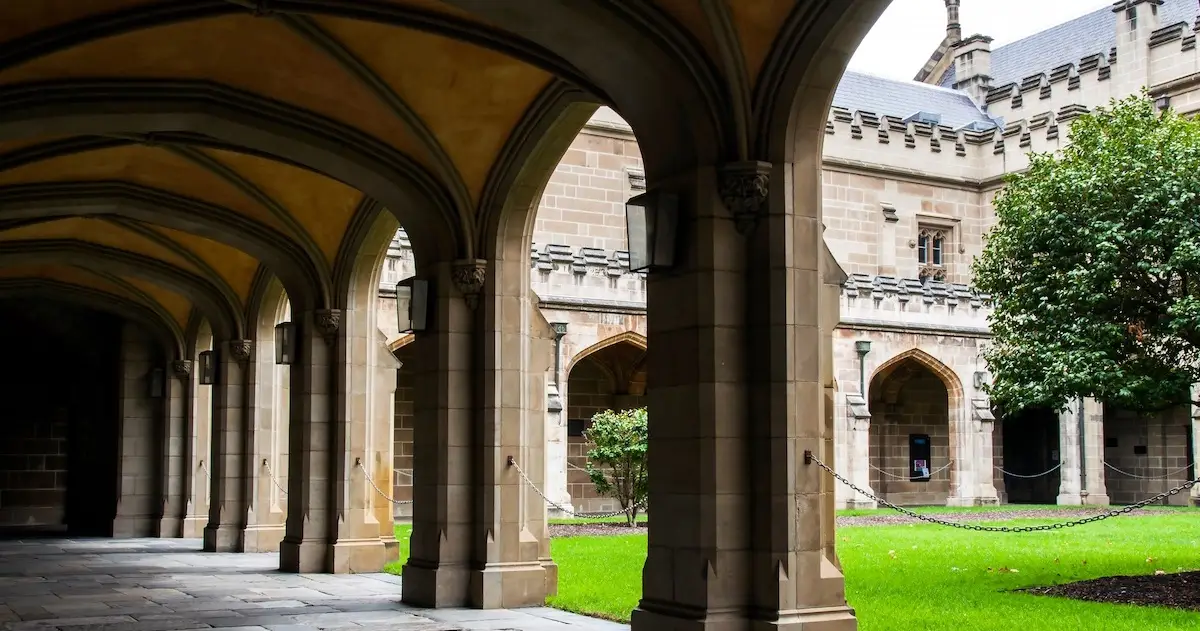
This was the outcome triggered by stonemasons working on the building of the University of Melbourne Law School who struck for better working conditions. May 1st being International Workers Day, the two were conveniently placed close together for a celebration of “the Worker”. In 1889 an international federation of socialist groups and trade unions designated May 1st as a day in support of workers, a day chosen because it coincided with the violent Haymarket Riot in Chicago three years earlier. However, the two dates above were inconveniently juxtaposed for Australia with the date of Anzac Day.
Anzac Day is probably the only holiday, apart from Christmas and Easter, which is celebrated across all Australia on the same day, where the holidays have significance. One celebrates those who lost their lives in War, picking a day which commemorated a disaster engineered by British military incompetence. Probably if we want to celebrate our miliary heritage, we should celebrate Monash Day, for the architect in bringing WWI to a close, despite the enduring incompetence of the British.
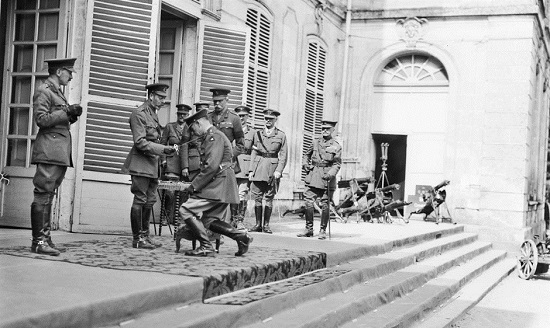
Discounting the universality of Christmas and Easter in Christian countries, which are still celebrated as holy days by an albeit diminishing number, these holidays have become more and more secular recreation. In Australia, mimicking the role of Thanksgiving in the USA, Christmas is our family holiday.
Our other holidays celebrate a horse race, various sporting events, and a variety of Show Days, which is urban Australia’s acknowledgement of its agricultural legacy. That is Australia! We even have a public holiday to celebrate a Sherrin of footballers being driven down the streets of Melbourne.
Now where is our Juneteenth? Maybe emancipation of Aborigines has yet to be fully realised to be able to celebrate. There is the ending of the White Australia, which we should celebrate, but don’t. There is no specific date, but 1973 is the year generally accepted, although an increase in the number and percentage of migrants from non-European countries did not take place until after the Fraser government came into office. Sorry, any date would need to be pinpointed and given the way we make decisions in Australia, it would be anybody’s guess.
Perhaps we should also celebrate the day the first Jew was allowed to join the Melbourne Club. Maybe not a public holiday but probably more worthy than a football final holiday.
But then Laura, really Australia is not a racist country, with its pavlova coating of multi-culturalism. How dare you, Laura for telling the truth.
The National Disability Insurance Scheme (NDIS)

What a cockup. But predictable. Albanese handed Shorten the consumption of The NDIS Sandwich and he is trying to not display his “inchurnment”.
In Australia there are many ways of wrangling money from the government, although the NDIS seems to have required minimal wrangling from applicants. Shonks and criminals, please line up here!
Nepotism
In my experience, not common in Australia, but for expertise in this matter ask Bob Katter.
The Mates Culture
Just give the grant out without any interference, meaning – stay within the amount for which the person making the grant has authority, having the sole delegation.
Have panels of mates who allocate the grant money under the laughable rubric of “peer review” – the majority of research grants are determined this way. The caveat – make sure they are mates. Stifles the outsider – ask Marshall and Warren, Nobel Laureates who were refused research grants by the research establishment.
The revolving door between the public service and consultancy firms whither ex-public servants work at higher rates of pay, doing the same job that they should have done while employed by the government.
Greedy ex-politicians in the Golden Trough together, “the Captain’s Club” mentality.

Inadequate supervision
Non-criminal – just use fraudulent qualifications/experience – the pink bats disaster is one recent example of this
The entry of organised crime, which seems to be the NDIS unfortunate situation, where the vulnerable – and ultimately the taxpayers who fund the NDIS – are exploited and successive government fails to act.
Why does it occur?

First, there is this urgency of Federal bureaucrats shovelling out the money willy-nilly. This removes any responsibility from the Department and the individual particularly.
Then there’s the custom of moving bureaucrats around so that there is no corporate memory and responsibility is diffused so it is nigh impossible to determine the actual person responsible. This enables organised crime to infiltrate the Department – the criminal insider. The Government is geared to destroy the whistleblower but not this criminal insider?
Now it’s the media (not the public service itself) which has shown up the problem because of some of the providers displaying the wealth garnered from this corrupted scheme.
The normal government response is to “take it seriously”; then do nothing. Shorten always affects small man aggression, but if he wanted to be effective, he would institute a group of “incorruptibles”, (not relying on the Federal Police solely) and examine the Department staff systematically. Criminals may be smart, but not that smart. The trail starts with the providers with signs of affluence and the people they are charged to protect. Treat them as though they are importing illegal drugs with the same vigour and publicity. The Nation cannot sustain organised criminals taking over social welfare – the NDIS, aged care and childcare – given the amount of money involved.
Get off your backside, Shorten, stop the smart comments and channel that aggression into effective ministerial action. First of all, I would do police checks on all those involved in shovelling out the money, including their family connections. Then it can all unravel, and undoubtedly Shorten, you have tools to assist that process. I have no up-to-date knowledge of these tools, but they are only adjuncts to a determination to get it corrected without resorting to an interminable Committee of Inquiry – or save me, yet another Royal Commission!
Remember the adage, Elliot Ness or Pointless Ness.
Thus Spake Mitchell McConnell
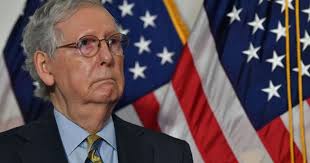 Below is an opinion piece from the Republican Minority Leader in the Senate, appearing in the NYT of June 6th. This is a damning criticism of those on the far-right fringe of his Party, which is destroying the traditional Republican Party with its malignancy that is Trump. Mitchell McConnell has been one of the Senators from Kentucky since 1985. He was two years old when D-Day occurred. He has taken this time, on the 80th anniversary of the Allied invasion of Normandy, to rebuke his own Party for repeating the isolationism advocated by his Party not to enter WWII, until after the attack on Pearl Harbour on December 7th, 1941 (more than two years after the outbreak of the war on September 4th, 1939) changed the American perception.
Below is an opinion piece from the Republican Minority Leader in the Senate, appearing in the NYT of June 6th. This is a damning criticism of those on the far-right fringe of his Party, which is destroying the traditional Republican Party with its malignancy that is Trump. Mitchell McConnell has been one of the Senators from Kentucky since 1985. He was two years old when D-Day occurred. He has taken this time, on the 80th anniversary of the Allied invasion of Normandy, to rebuke his own Party for repeating the isolationism advocated by his Party not to enter WWII, until after the attack on Pearl Harbour on December 7th, 1941 (more than two years after the outbreak of the war on September 4th, 1939) changed the American perception.
God knows what would have happened to Europe if Germany had not declared War on America and left the Americans only with the Pacific War theatre. But the Germans did not think it through. Nevertheless, the isolationists, with figures like Charles Lindbergh, the populist Roman Catholic priest, Father Coughlin and the Republican Senator Arthur Vandenberg from Michigan, were a formidable force until that date. After Pearl Harbour, their advocacy was vanquished. Vandenberg later came round to support the American intervention.
Even in this opinion piece confronting the Trumpians, McConnell can’t shed all his partisan biases, (after all, it was Roosevelt, a Democratic President who steered the USA through WWII). Nevertheless, despite his faults, he has claims to be considered a true Republican with a legitimate lineage back to Abraham Lincoln.
But this, almost his last hurrah, the old man suffering from petit mal epilepsy, who in retirement wishes to remain on the right side of history, in more ways than one. Thus, I believe it’s worth noting.
On this day in 1944, the liberation of Western Europe began with immense sacrifice. In a tribute delivered 40 years later from a Normandy cliff, President Ronald Reagan reminded us that “the boys of Pointe du Hoc” were “heroes who helped end a war.” That last detail is worth some reflection because we are in danger of forgetting why it matters.
American soldiers, sailors, airmen and Marines joined allies and took the fight to the Axis powers not as a first instinct, but as a last resort. They ended a war that the free world’s inaction had left them no choice but to fight.
Generations have taken pride in the triumph of the West’s wartime bravery and ingenuity, from the assembly lines to the front lines. We reflect less often on the fact that the world was plunged into war, and millions of innocents died because European powers and the United States met the rise of a militant authoritarian with appeasement or naïve neglect in the first place.
We forget how influential isolationists persuaded millions of Americans that the fate of allies and partners mattered little to our own security and prosperity. We gloss over the powerful political forces that downplayed growing danger, resisted providing assistance to allies and partners, and tried to limit America’s ability to defend its national interests.
Of course, Americans heard much less from our disgraced isolationists after the attack on Pearl Harbor. Today, America and our allies face some of the gravest threats to our security since Axis forces marched across Europe and the Pacific. And as these threats grow, some of the same forces that hampered our response in the 1930s have re-emerged.
Germany is now a close ally and trading partner. But it was caught flat-footed by the rise of a new axis of authoritarians made up of Russia, China, North Korea and Iran. So, too, were the advanced European powers who once united to defeat the Nazis.
Like the United States, they responded to Russia’s aggression in Ukraine in 2014 with wishful thinking. The disrepair of their militaries and defence industrial bases, and their overreliance on foreign energy and technology, were further exposed by Russia’s dramatic escalation in 2022.
By contrast, Japan needed fewer reminders about threats from aggressive neighbours or about the growing links between Russia and China. Increasingly, America’s allies and partners in the Indo-Pacific are taking seriously the urgent requirements of self-defence. Fortunately, in the past two years, some of our European allies have taken overdue steps in the same direction.
Here at home, we face problems of our own. Some vocal corners of the American right are trying to resurrect the discredited brand of prewar isolationism and deny the basic value of the alliance system that has kept the postwar peace. This dangerous proposition rivals the American left’s longstanding allergy to military spending in its potential to make America less safe.
It should not take another catastrophic attack like Pearl Harbor to wake today’s isolationists from the delusion that regional conflicts have no consequences for the world’s most powerful and prosperous nation. With global power comes global interests and global responsibilities.
Nor should President Biden or congressional Democrats require another major conflict to start investing seriously in American hard power.
The President began this year’s State of the Union with a reference to President Franklin Roosevelt’s 1941 effort to prepare the nation to meet the Axis threat. But until the commander in chief is willing to meaningfully invest in America’s deterrent power, this talk carries little weight.
In 1941, President Roosevelt justified a belated increase in military spending to 5.5 percent of gross domestic product. On the road to victory, that figure would reach 37 percent. Deterring conflict today costs less than fighting it tomorrow.
I was encouraged by the plan laid out last week by my friend, the ranking member of the Senate Armed Services Committee, Roger Wicker (R-Mississippi) which detailed specific actions the president and colleagues in Congress should take to prepare America for long-term strategic competition.
I hope my colleague’s work prompts overdue action to address shortcomings in shipbuilding and the production of long-range munitions and missile defences. Rebuilding the arsenal of democracy would demonstrate to America’s allies and adversaries alike that our commitment to the stable order of international peace and prosperity is rock-solid.
Nothing else will suffice. Not a desperate pursuit of nuclear diplomacy with Iran, the world’s most active state sponsor of terrorism. Not cabinet junkets to Beijing in pursuit of common ground on climate policy. The way to prove that America means what it says is to show what we’re willing to fight for.
Eighty years ago, America and our allies fought because we had to. The forces assembled on the English Channel on June 6, 1944, represented the fruits of many months of feverish planning. And once victory was secure, the United States led the formation of the alliances that have underpinned Western peace and security ever since.
Today, the better part of valour is to build credible defences before they are necessary and demonstrate American leadership before it is doubted any further.
True in the First Part
The little girl was standing on a street in a village in Yugoslavia. The American plane came in on a strafing run towards her. The little girl caught a glimpse of the pilot. He was an Afro-American. The pilot did not fire and aborted the strafing run.
Eighty years later, a little girl stood on a street in Gaza. The Israeli plane came on a strafing run towards her …
The first is a true story.
Which brings me to David Crowe
In an opinion piece last Friday in the SMH, David Crowe described how two men in balaclavas defaced the office of a Labor MP and they left the Hamas “calling card”. They and the confederate who filmed the incident and loaded it onto social media were “vandals in the night using the same claims that the Greens made during the day”.
Crowe jumped to a conclusion, gratuitously besmirching Adam Bandt in the process, but he does not explicitly name the men in the balaclavas. Nevertheless, his assumption is plain. Crowe may be right. However …
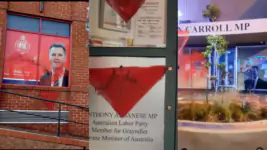
His piece was on page 28. In a spread on pages 24 and 25 of the same issue of the SMH there is an article on “Israeli War of Influence”. It details how deeply the Israeli government is into misinformation dissemination. So, be careful, Mr Crowe, of your assumptions unless you have removed the balaclavas and actually identified the vandals in person.
Judging from the conflict in the university campuses, thuggery is not confined to one side.
Perhaps you, Mr Crowe, have not met any of the Mossad agents in this country. I have – somewhat accidentally, as I have written in a previous blog.
It was not an easily forgotten experience.
Mouse Whisper
A person good at computers. A person skilled in doing anything quickly and comfortably on a computer, laptop, tablet or smart phone, usually using a mouse or not.
As one instance, my extremely competent wife got on the computer and fixed a payment issue with the bank in 10 minutes with just some clicks of the mouse. She’s a mouse whisperer.
There you are. Immortality in my 273rd whisper.
